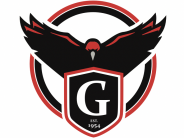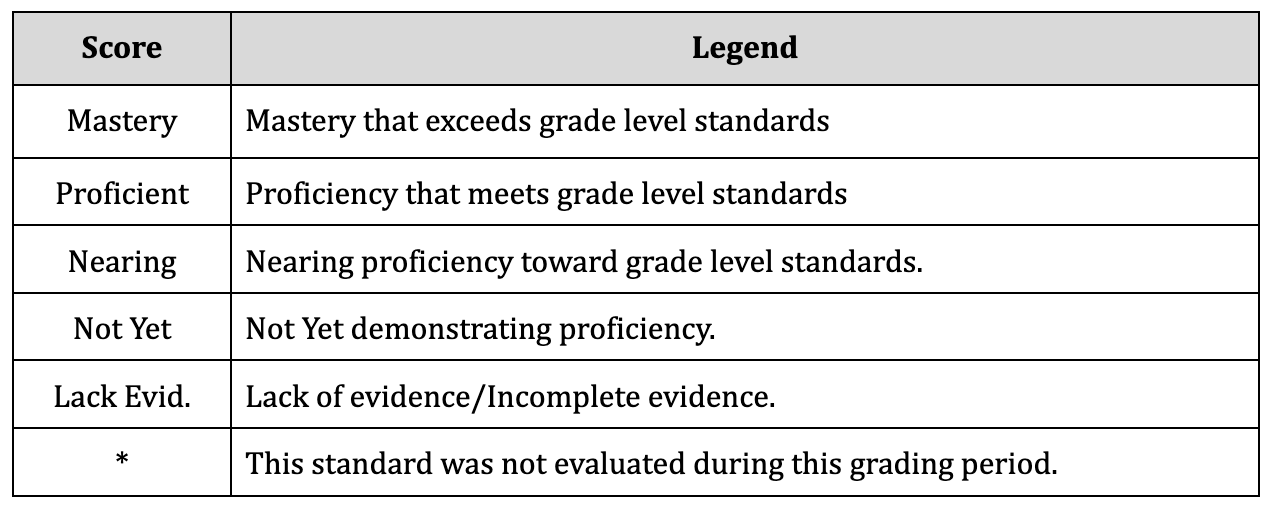Gardiner Academics
Here at the Oregon City School District we want our students to think critically, collaborate with others on authentic projects, and persevere when learning gets tough. We want our students to leave school as expert learners who create and innovate. We want them to be reflective so that they learn from their mistakes to improve and grow
Instructional Frameworks:
OCSD middle schools are on a journey to become deeper learning schools. To achieve this we use three instructional frameworks to design learning experiences for students; (1) Universal Design for Learning, (2) AVID WICOR strategies, and (3) deeper learning competencies. Ultimately, we see deeper learning as the intersection of creativity, identity, and mastery. These descriptors give vision for our instructional decisions.
When students engage in deeper learning they master content knowledge, communicate effectively, work collaboratively, think critically, and develop an academic mindset. Teachers utilize our flexible learning spaces to design experiences for deeper learning by using practices such as interdisciplinary and project based learning, Universal Design for Learning, and AVID strategies. Our instructional model encourages students to dig deeply into a subject, going beyond content memorization, in order to grapple with concepts and skills that are fundamental to each discipline.
ACADEMIC CLASSES:
-
Year Long:
English/Language Arts*
Math*
Science (embedded Health units)*
Electives: AVID; Band; Choir; ELDSemester Long:
PE*
Social Studies*
Electives: Intro to MakerSpace; Intro to World Cultures; Food, Fitness, & Fun
(*Required Course)
-
Year Long:
English/Language Arts*
Math*
Science (embedded Health units)*
Electives: AVID, Band, Choir, ELD, Spanish
Semester Long:
PE*
Social Studies*
Electives: Art, Arts & Crafts, Design, Drama, Woodshop, Student Assistant, Yearbook(*Required Course)
-
Year Long:
English/Language Arts*
Math*
Science (embedded Health units)*
Electives: AVID, Band, Choir, ELD, Spanish
Semester Long:PE*
Social Studies*
Electives: Art; Arts & Crafts; Design; Drama; Food, Fitness & Fun; Woodshop; Student Assistant; Yearbook(*Required Course)
Content Standards:
Each class at Gardiner is based on grade level standards adopted by the Oregon Department of Education. The standards for each class informs what skills and knowledge will be taught throughout the year. OCSD has identified priority standards that are reported on throughout the year. See "Grade Reporting" for more information on report cards at Gardiner.
Using the standards, teachers design deeper learning experiences for students that are relevant, engaging and rigorous. Units of study are adapted yearly to meet the needs and interests of current students. Teachers integrate interdisciplinary opportunities when possible.
OCSD Adopted Curriculum
English Language Arts: StudySync
Health: Teen Health
Math: CoreFocus
Science: iQWST
Visit OSCD's curriculum page to learn more about the adopted curriculum for specific content classes.
ELD:
The English Language Development (ELD) program's mission is to assist students with a home language other than English to become proficient in English. Students and their families in the ELD program represent 40+ different languages spoken throughout our Oregon City community. English language development (ELD) is taught by ELL specialists through pull-out sessions or push-in/co-taught content lessons at the elementary level and specifically designed class periods at the secondary level. The ELD Program also offers additional support for English language learners by scheduling paraprofessionals to assist students in selected mainstream classes. Finally, the ELD Program coordinates professional development for all district staff in the area of sheltered instruction.
Grade Reporting:
A fairly recent shift has been moving to Standards-Based grading (Senate Bill 2220), also referred to as Proficiency-Based Grading, aimed at preparing students for life beyond high school. This Oregon state law requires grading practices to be focused solely on student progress toward state standards.
Students will not receive an overall class grade for each subject area.
Students will receive a proficiency score (as shown in the table below) for the grade level content standards in each subject area. Proficiency scores are based on students’ current level of skill and/or understanding as demonstrated through assignments, projects, tests, etc.
This reporting method will help communicate students’ progress on discipline-specific skills and knowledge, while also encouraging continual growth and reflection.
Online Textbooks:
Students have online access to the following textbooks through Classlink
English Language Arts: StudySync by McGraw Hill
Math: CoreFocus
Science: iQWST
Many teachers post needed materials through Google Classroom.
Student Services:
Special Services provides special support programs for students with disabilities as prescribed by federal and state law. We provide evaluation services, develop individualized education plans in conjunction with parents, and provide for least restrictive learning settings for students with special needs. For more information please contact Student Services.
TAG (Talented and Gifted):
The Oregon City School District is committed to an educational program that recognizes, identifies, and serves the unique needs and interests of talented and gifted students in all grade levels, K-12. In compliance with the State of Oregon TAG mandate, students are identified as academically talented if they score 97% or higher on a nationally standardized test of reading or math or intellectually gifted if they score 97% or higher on a nationally standardized test of mental ability.
A student may be identified as TAG in reading, math, intellectual or a combination of these. No single test shall be the sole criteria for determination. Classroom teachers differentiate instruction to address each TAG student’s level of learning and accelerated rate of learning. (See OCSDs TAG page for more information and resources.)


